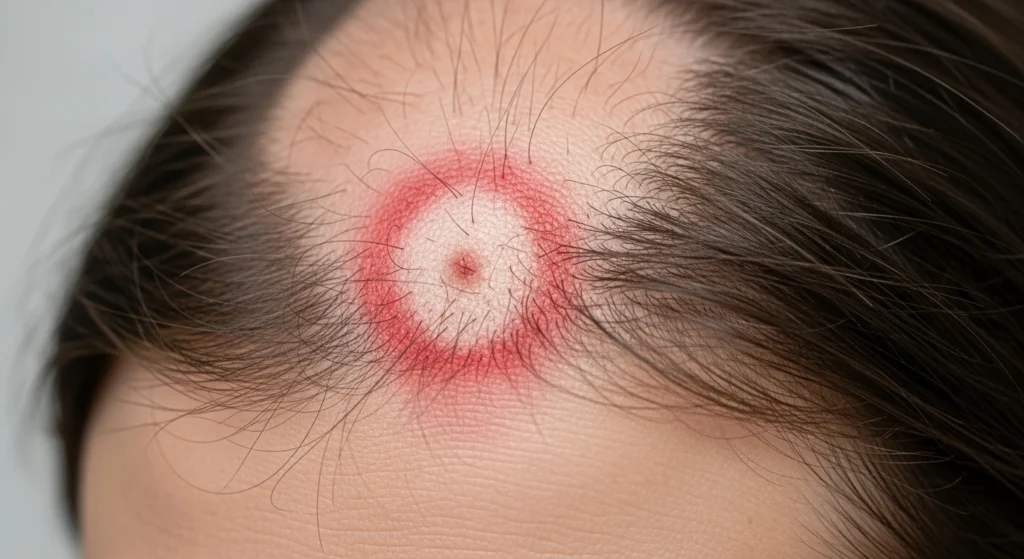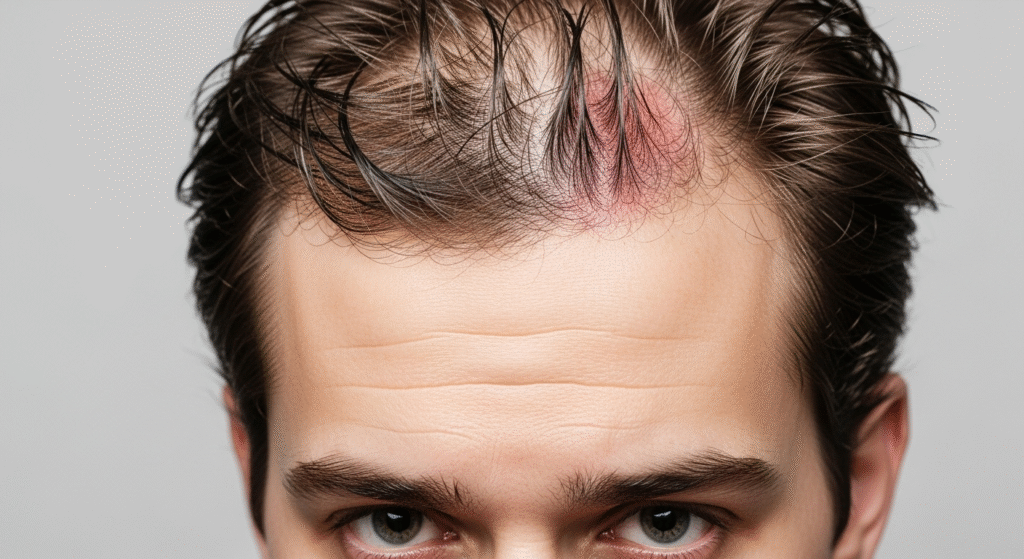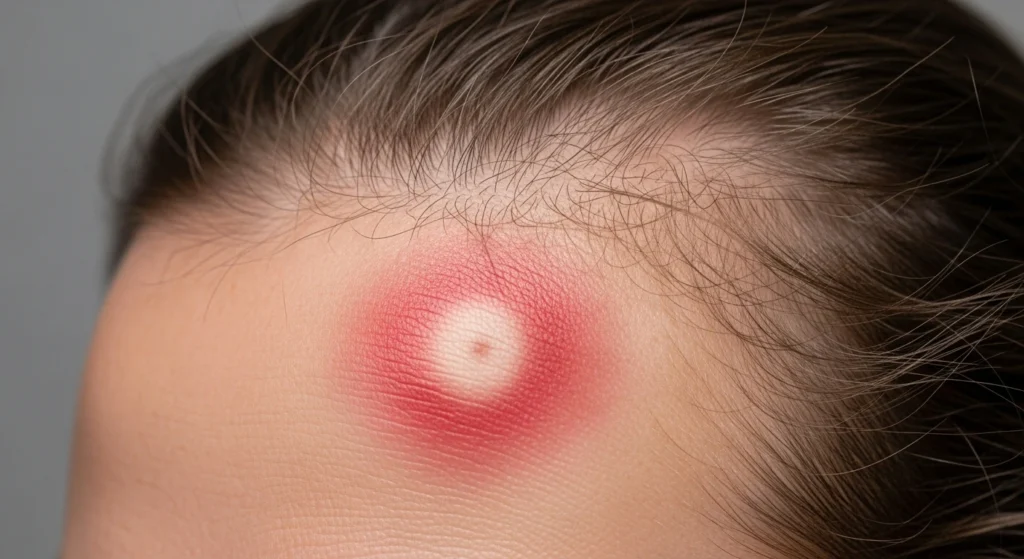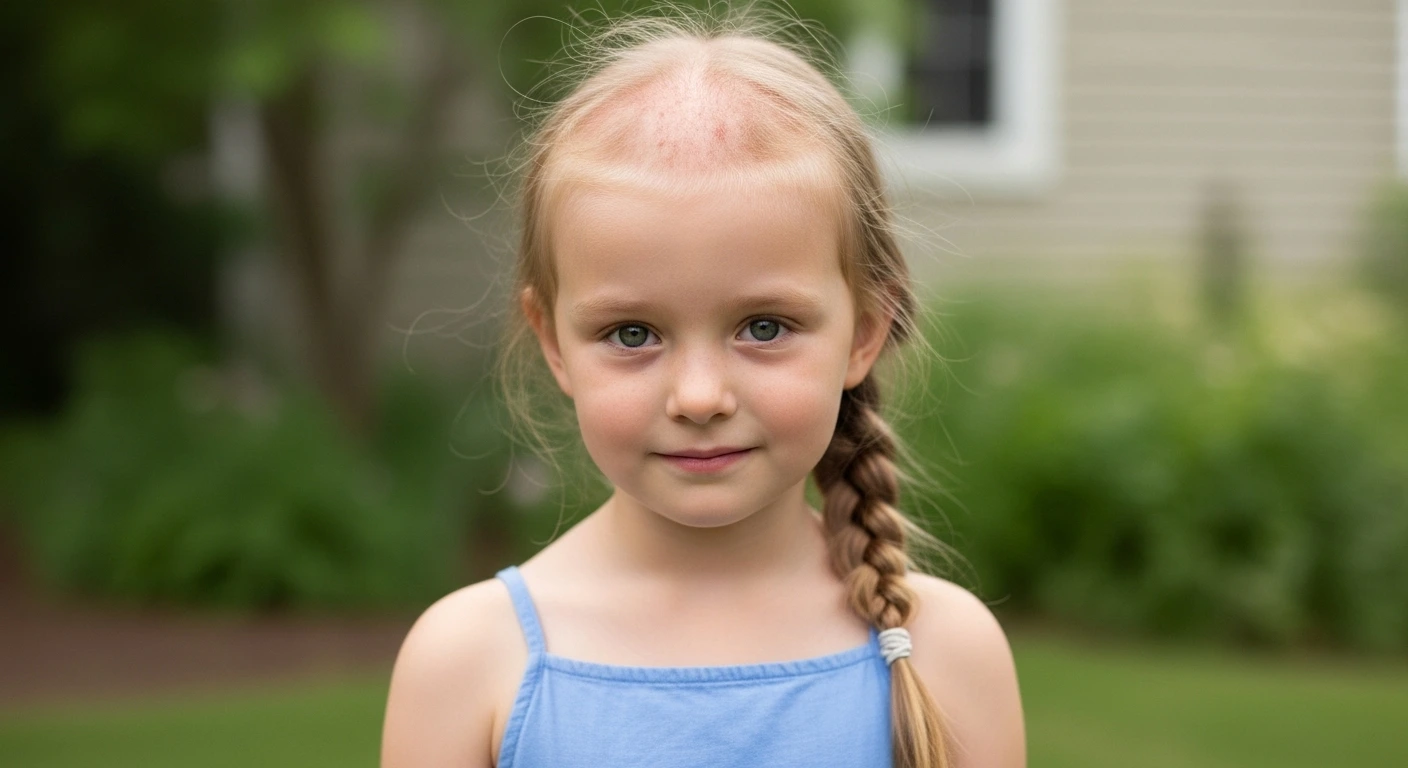Hair loss can be distressing, especially when the cause isn’t obvious. If you’ve been diagnosed with Lyme disease, you may be wondering whether it’s responsible for your thinning hair. The connection between Lyme and hair loss is real, though often misunderstood. This article explores the science, symptoms, treatment, and practical solutions to help you understand …
Hair loss can be distressing, especially when the cause isn’t obvious. If you’ve been diagnosed with Lyme disease, you may be wondering whether it’s responsible for your thinning hair.
The connection between Lyme and hair loss is real, though often misunderstood. This article explores the science, symptoms, treatment, and practical solutions to help you understand and manage this issue effectively.

What is Lyme Disease?
Lyme disease is a bacterial infection caused by Borrelia burgdorferi, typically transmitted through a tick bite. Early symptoms may include fever, fatigue, joint pain, and a distinctive bullseye rash.
If left untreated, Lyme can affect various body systems—including your skin, joints, nervous system, and even your hair.
How Does Lyme Disease Lead to Hair Loss?

While hair loss isn’t a hallmark symptom, many Lyme patients report unexplained hair thinning. Why?
- Inflammation: Chronic inflammation caused by Lyme can disrupt the hair growth cycle.
- Immune Response: The immune system may attack hair follicles mistakenly.
- Stress and Nutritional Deficiency: Lyme disease often leads to physical stress and malabsorption, which impact hair health.
Telogen Effluvium and Lyme: A Common Connection
Many patients with Lyme and hair loss experience Telogen Effluvium, a condition where hair follicles prematurely enter the shedding phase due to stress or illness. It typically occurs 2–3 months after the initial infection or intense flare-up.
Key Signs of Lyme-Related Hair Loss:
- Sudden thinning of hair all over the scalp
- Excessive shedding during brushing or washing
- Weak or brittle strands
Other Causes to Rule Out
Before blaming Lyme alone, consider these contributing factors:
- Autoimmune diseases (e.g., alopecia areata, lupus)
- Hormonal imbalances (especially thyroid dysfunction)
- Medication side effects
- Poor nutrition (especially iron, B12, biotin)
Can Hair Grow Back After Lyme Disease?
Yes, in most cases! Once the underlying inflammation or infection is managed, hair follicles can recover. Recovery time varies but typically takes 3–6 months for visible improvements.
Best Treatments for Hair Loss from Lyme

To address Lyme and hair loss, consider these solutions:
1. Treat the Root Cause:
- Antibiotics (e.g., doxycycline, amoxicillin) under physician supervision
- Herbal or homeopathic protocols (consult integrative Lyme specialist)
2. Support Hair Regrowth:
- Biotin, zinc, and B-complex supplements
- Topical minoxidil (under doctor guidance)
- Low-level laser therapy (LLLT)
3. Anti-Inflammatory Support:
- Omega-3 supplements
- Curcumin and antioxidant-rich foods
4. Manage Stress and Sleep:
- Mindfulness practices
- Sleep hygiene to support healing
When to See a Doctor
If you suspect your hair loss is linked to Lyme disease:
- Get tested for Lyme if you haven’t yet (ELISA + Western blot)
- Ask for thyroid and iron panel
- Visit a dermatologist or trichologist for scalp evaluation
Final Thoughts on Lyme and Hair Loss
Hair loss can feel like yet another frustrating symptom of Lyme—but it’s not permanent. By treating the infection, reducing inflammation, and nourishing your body, recovery is within reach.
FAQs
Q1. Can Lyme cause patchy hair loss like alopecia areata?
A: Rarely, but if the immune system is severely triggered, it may.
Q2. How long does hair take to regrow after treating Lyme?
A: Typically, 3 to 6 months, though results vary by individual.
Q3. Can antibiotics worsen hair loss?
A: Some patients experience temporary shedding from antibiotics, but it usually resolves.
Q4. Is Lyme-induced hair loss permanent?
A: Not usually. With proper treatment and care, regrowth is possible.
GET READY TO TAKE NEXT STEP:
Struggling with Lyme-related hair loss? Book a consultation with Dr. Uzma Irfan, an ISHRS-certified surgeon in Islamabad today to get a customized recovery plan based on your diagnosis and hair goals.






